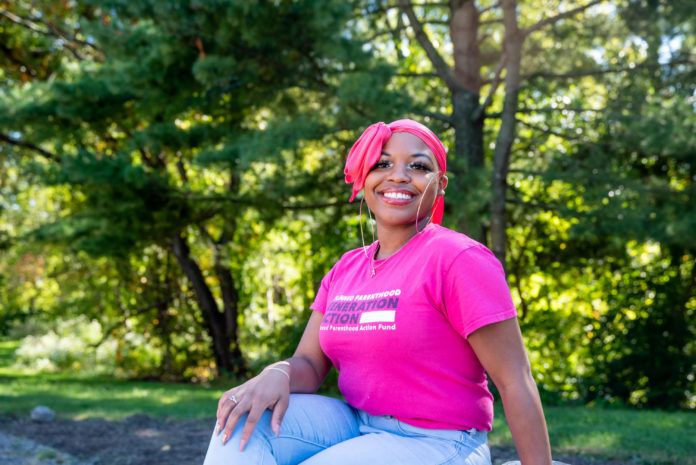Last week, Generation Action Rowan hosted “Believe and Support Black Femmes,” a virtual series of events from Tuesday, Feb. 23, to Thursday, Feb. 25.
Generation Action is partnered with Planned Parenthood and aims to educate students about reproductive rights. Wednesday’s event, “Advocate Like a Boss,” included a discussion panel to which attendees could send their questions.
President of Generation Action Rowan, Alexis Thompson, hosted the event and spoke with panelists regarding student questions. The panelists included Miss Mojo, an artist and activist; Hope Giselle, a diversity, equity and inclusion specialist; and advocate and Dr. Alicia Monroe, Rowan professor and activist.
The event focused on educating students about the daily struggles that Black femmes face, as well as obtaining the ability to bring that knowledge into their communities. Femme can be defined as someone who aligns themselves with femininity — internally and externally. There were a variety of discussion topics, including medical racism, Black motherhood and Black femininity.
“We wanted our audience to become educated on the struggle of Black femmes and hear their voices — ones that are often overlooked and silenced,” Thompson said.
While panel members discussed their individual journeys as Black femmes, Miss Mojo went on to detail her activist origin.
“Activism has always been in my bloodline… for me personally, my activism is showing up as a fat, Black, trans woman, staying alive and giving resources to people who need it,” she said. “It’s sharing my story, because it’s so important that we document our existence. It’s connecting with people from all over the world and educating them to fight against the ignorance of transphobia, fatphobia and anti-Blackness. My activism is me.”
The panel also shared their experiences and thoughts on medical racism. According to Generation Action, Black women are twice as likely to die from complications like heart attacks, blood clots and excessive bleeding.
“I don’t think that it’s a conspiracy theory to say that there’s a reason why you have a huge percentage of Black women who die during childbirth,” Giselle said.
Miss Mojo furthered the conversation through discussion of tennis player Serena Williams and her being wrongfully denied medical care during childbirth.
“We are living in a world where arguably the greatest athlete of all time was denied adequate medical care while she was in the process of giving birth, because the doctors didn’t believe that her pain was real,” Miss Mojo said. “The doctors didn’t believe that she knew her body. She knew that she was prone to clotting.”
As panelists continued in discussion of the medical mistreatment of Black women, Monroe went on to propose a solution to the greater problem, encouraging individuals to educate themselves, vote wisely and make their voices heard.
“I need you to go out there and do this research,” Monroe said. “I need you to become aware. I need you to go out there and vote, and you don’t cast a vote that you don’t know about; you become informed voters. You put the people on the ballot that need to be there, that speak your truth, that represent who you are and that amplify your voice. This is how we are going to shift the narrative; this is how we are going to move the needle.”
The panel discussion concluded with a conversation surrounding intersectionality – the interconnected nature of social categorizations, such as race and gender, as they apply to a person.
“People do not come compartmentalized for your digestion. We come as a whole pill, and you can either swallow it or not,” Giselle said. “Then, we’ll be able to move into a space where people understand that a queer person who is Black is not somebody that has to choose. They are somebody that has a full identity, that includes a multitude of different things… if you are only going to tolerate that, then maybe you shouldn’t accept that into your presence and your being. And those things are O.K., so long as you do them respectfully.”
The panel ultimately aimed to express that individuals should embrace themselves, know their worth and work collectively to stop the mistreatment of Black women within these spaces.
“I only surround myself with people who celebrate me, not tolerate me,” Miss Mojo said. “That’s two different world views. I encourage everyone to think about the ways in which you are celebrated and tolerated. Go where you are celebrated.”
For comments/questions about this story, email features@thewhitonline.com or tweet @TheWhitOnline.






